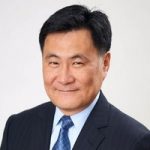The Kihomac Deloitte deal is intended to strengthen domestic production capacity for key defense technologies, with global consulting firm Deloitte investing in Kihomac, a Korean-American–owned defense and aerospace manufacturer.

Deloitte said it decided to invest in Kihomac to support the expansion of U.S. production capabilities for technologies that are critical to national security and economic competitiveness. The firm added that the partnership is expected to help create manufacturing jobs and contribute to building a more stable domestic supply chain.
Kihomac, a defense contractor headquartered in Virginia, is a Korean-American company founded by Kiho Kang, who also serves as CEO. Kang joined the Air Force as a commissioned officer in 1989, served on active duty until 2000, and continued in the reserves until 2010. He established Kihomac in 2003.

With this investment, Kihomac plans to expand its production lines to Utah and rapidly build a mass-production system for advanced drones to supply government agencies and private-sector clients. The two companies also plan to provide U.S.-made drones for infrastructure inspection, emergency response, and defense and security applications.
Kang said Deloitte’s vision and investment represent an important turning point for domestic drone manufacturing. He noted that the partnership will expand the supply of safe and reliable drones and help keep innovation and manufacturing ecosystems within the United States.
The cooperation between the two firms comes as interest in unmanned combat drones grows, following their unprecedented use in the war in Ukraine. On November 7, Army Secretary Daniel Driscoll said the U.S. Army plans to purchase at least 1 million drones over the next 2 to 3 years, adding that annual procurement could range from 500,000 units to several million. The Army currently buys about 50,000 drones per year.
Globally, China has established a dominant position in drone manufacturing. Driscoll said Ukraine and Russia each produce around 4 million drones annually, and China may be capable of producing more than twice that number. He emphasized that the United States should develop a supply chain capable of producing as many drones as needed at any time.
BY HOONSIK WOO [woo.hoonsik@koreadaily.com]

![Thefts target Korean churches in LA, exploiting Sunday services A man believed to be the suspect. [Courtesy of Pastor Sam Shin]](https://www.koreadailyus.com/wp-content/uploads/2026/02/0203-thief-100x70.jpg)
![SSA to scrutinize overseas travel of Social Security beneficiarie An illustrative image of Social Security beneficiaries traveling abroad. [ChatGPT-generated image]](https://www.koreadailyus.com/wp-content/uploads/2026/02/0202-social-security-100x70.jpg)
